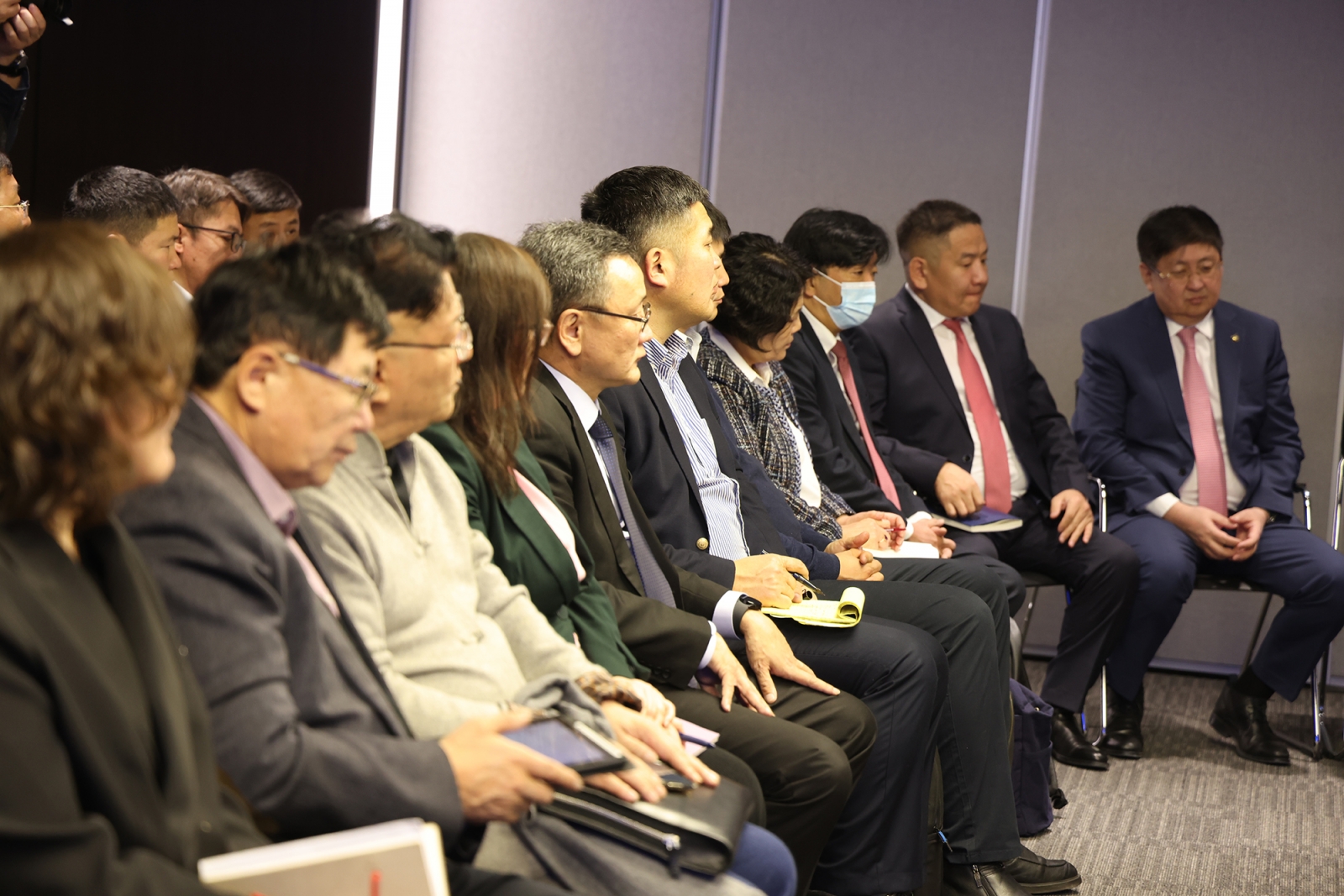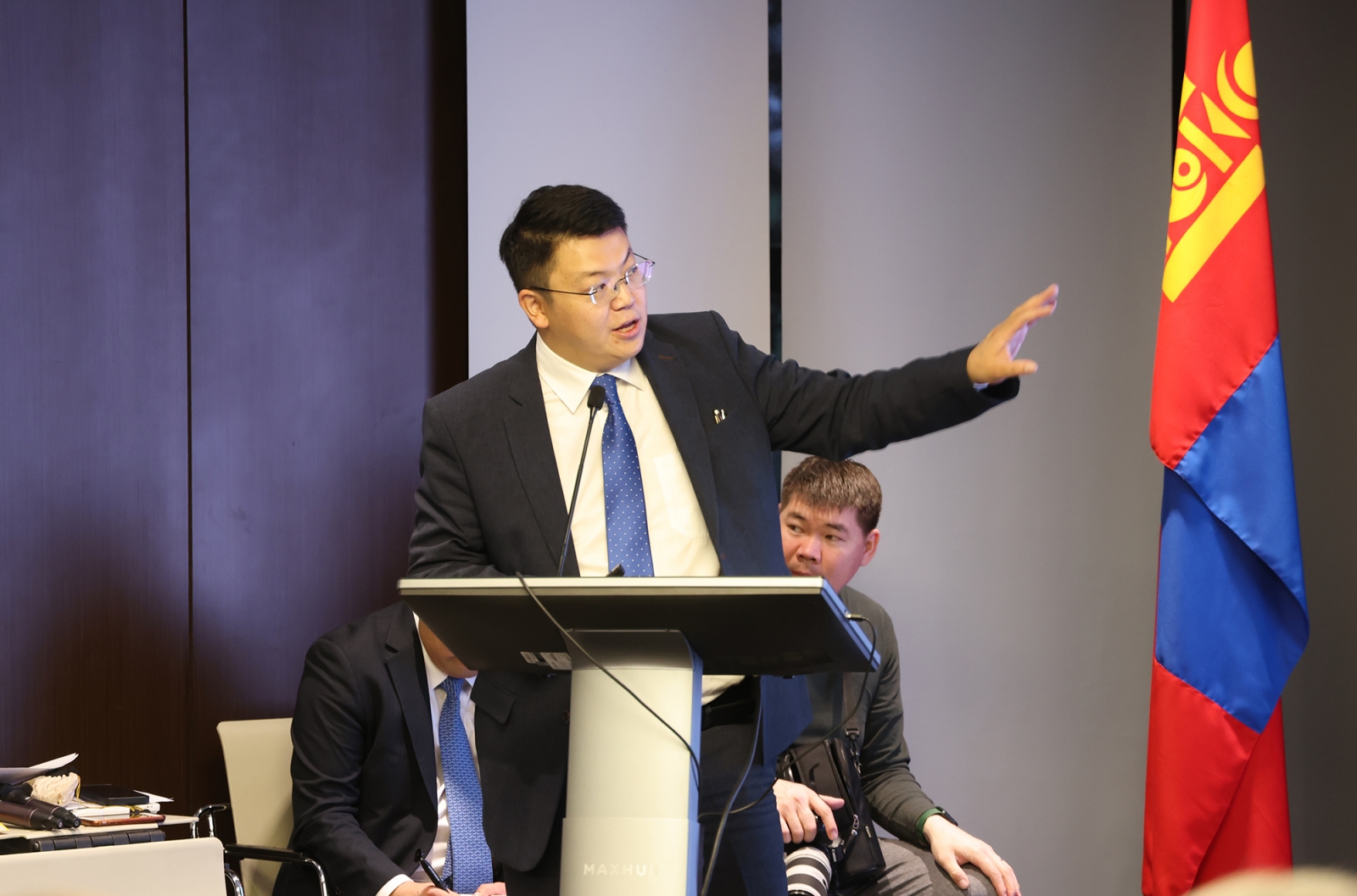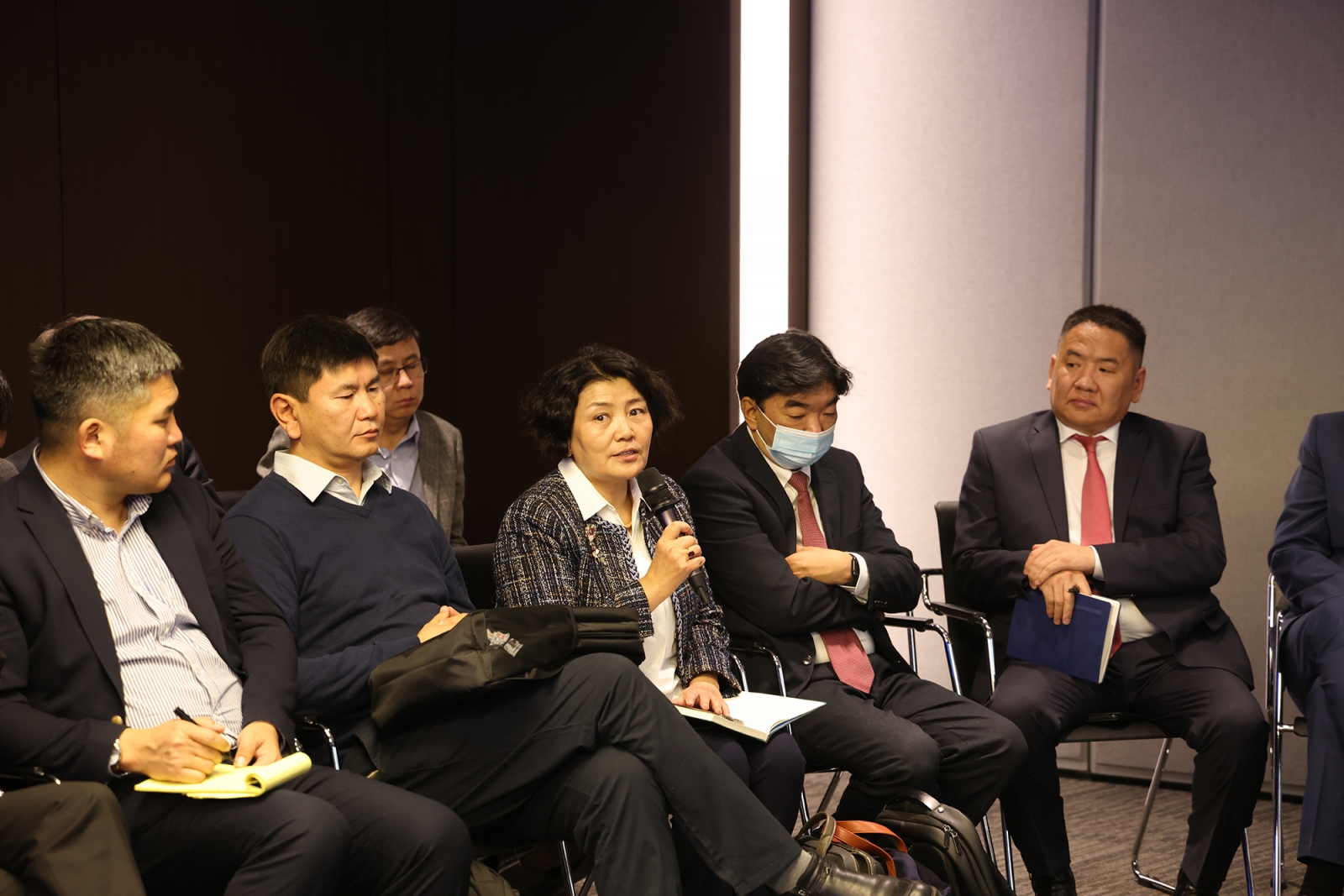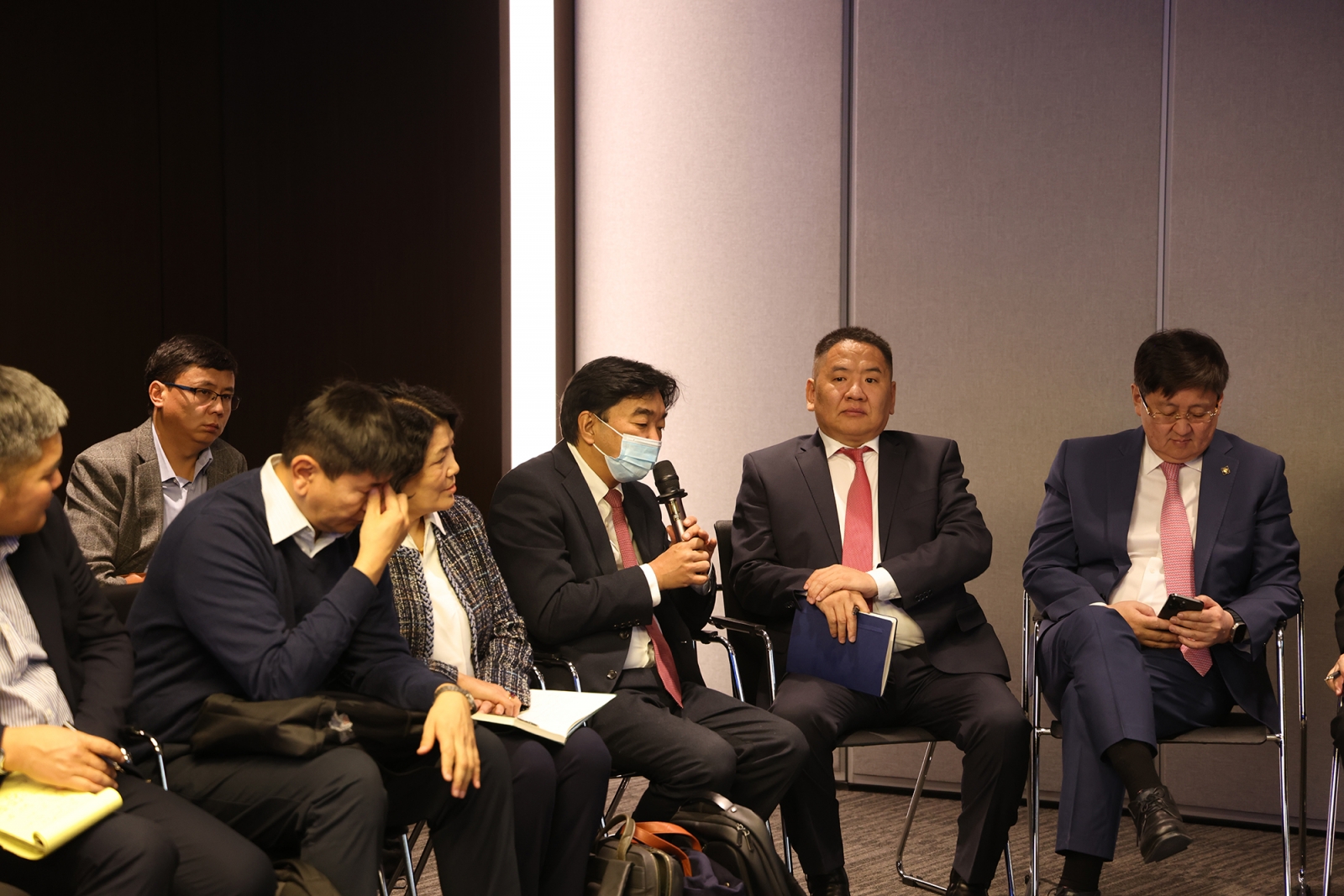The Prime Minister of Mongolia holds his scheduled breakfast meeting at the Bank of Mongolia

On November 20, 2023, the Governor of the Bank of Mongolia Lkhagvasuren with the Prime Minister Oyun-Erdene have jointly organized a breakfast meeting with leading economists and researchers on the impact of economic growth on households. All the parties held a candid and constructive discussion on a range of issues including the importance of adopting a coherent policy to sustain economic growth that benefits every household.

The Prime Minister opened the meeting highlighting trade surplus: “For the first 10 months of this year, trade surplus has reached USD 4.9 billion, the budget surplus reached MNT 2.1 trillion and the revenue exceeded the initial projection.”

The Chief Economist of the Bank of Mongolia, Gan-Ochir, presented key data on the topic “The effects of economic recovery on households and issues to be considered.”

- As of 2023, the number of households with monthly earnings of more than MNT 2.1 million increased from 27.5 percent in 2020 to 40.8 percent in 2023Q3 and reached 980,000 households. Overall, households are gradually moving from low to middle income and from middle to high income, which is a positive sign.
- High-income households contribute 40 percent to total household income, while low-income households account for 8 percent. Pensions and social welfare constitute 65 percent of low-income households’ income, while as income increases, the share of pensions and social welfare decrease and salary income increases.
- In 2023Q2, the average household income fell MNT 200,000 below expenditure, due to the effective government policy on the redistribution of income, the gap decreased to MNT 80,000 in 2023Q3.
- An important indicator of inclusive economic growth, wage income in GDP is 28 percent, relatively lower than the 40 percent average in developing and developed countries.
- Individual’s saving deposits rose from MNT 9.9 trillion in 2020 to MNT 13 trillion in 2023Q3, with a 15 percent increase in deposits up to MNT 10 million. If we subtract consumption loans and loans secured by savings, it is MNT 4.9 trillion.
- The banking sector's total loan balance grew 14 percent, with consumer loans increasing by 35.5 percent, influenced by the gap between household income and expenditure.
- To safeguard real income, the Bank of Mongolia plans to maintain a tight monetary policy until inflation reaches the target 6±2 percentage points. Within the framework of macroprudential policy, it is crucial to focus on regulating business lending more than consumer loans.

Economists proposed directing welfare policies towards specific target groups, emphasizing education and health, promoting industrialization and mega projects, and implementing initiatives in the oil, steel, and copper industries. Balancing urban and rural development involves optimizing tax policies, facilitating lower costs in local areas, and adhering to the constitutional principle of public ownership of state-owned company shares.

The Prime Minister Oyun-Erdene concluded the meeting by presenting the government’s stance on each economist’s proposal. He also emphasized the need to have a unified platform to receive valuable research findings made by economists and researchers on the economic policy.



